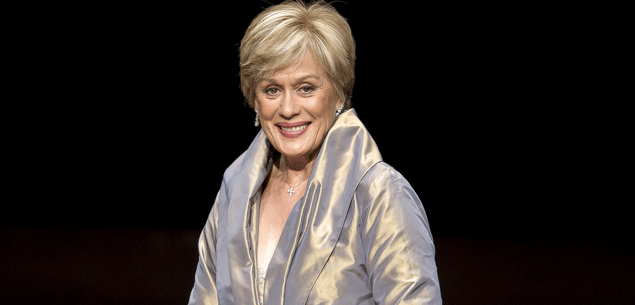She’s one of the most recognisable names in New Zealand’s gallery of greats. Dame Kiri Te Kanawa has shone brightly on the world stage since the 1960s with a celebrated opera career that included singing at the 1981 wedding of Prince Charles and Lady Diana Spencer – a performance watched by an estimated 600 million people around the world.
She created an unforgettable international sensation when she debuted as the Countess in Covent Garden’s production of The Marriage of Figaro in 1971. Dame Kiri continued to sing at Covent Garden for many years, as well as performing in most of the world’s great opera houses, in particular the Metropolitan Opera in New York and the Paris Opera, where she also appeared in a number of new productions.
Dame Kiri has recorded more than 80 albums and was for many years the world’s leading female classical recording star. Her glorious lyric soprano voice has been variously described as one of the greatest of the 20th century. Her career has also included recording West Side Story with its composer Leonard Bernstein and appearing in an episode of Downton Abbey. She has performed before royalty and presidents, including singing Happy Birthday at Buckingham Palace to our late Queen in 2006.

Her awards and honours bestowed from around the world are simply too extensive to list here.
But Dame Kiri isn’t short of a joke when asked to name her greatest triumph. “Living to 78 is a triumph!” she laughs. After a career spanning more than five decades, the soprano says she lives by two mantras: tell the truth and know who you are.
“Don’t try and be who you’re not,” she says. “And the other thing is, sort out the givers from the takers. Just the smallest of things will tell me if someone’s a taker. That’s not the company I want to keep – as long as I’m giving too, of course.”
She’s now retired and living in the far north, and Dame Kiri says Māori land rights leader Dame Whina Cooper is one of the Kiwi women she admires the most.
“She walked the length of the North Island, beginning the journey with her little granddaughter by her side,” tells Dame Kiri. “It was the old bringing in the new and making people aware of what the problems were at home. She made people aware of what was happening.”
Dame Kiri’s musical talents were spotted early on when she was a pupil at St Mary’s College in Auckland.
If she could visit her 16-year-old self, however, she says, “I would tell all the teachers, ‘You’re trying to teach me, yet the music teacher is pulling me out of every single class. Stop pulling me out of class!’ I ended up with no education.
“I basically educated myself, but in the first years of my career, I couldn’t even write a letter because I’d never had time to sit in class. In those early years, I saved letters from all sorts of people. Any thank-you letters I saved and tried to copy what they’d said in order to write a decent letter.”
When it comes to the hurdles facing Kiwi women today, Dame Kiri says, “I don’t think there are hurdles. It’s your own hurdles. You make them yourself. Nothing’s impossible unless you sit under a tree and do nothing.”
 Jae Frew
Jae Frew


